In late 2007, with the Abraham Lincoln Bicentennial approaching, we were offered a commission by Muddy River Opera (Land of Lincoln) to complete a serious musical based on the adult years of Lincoln before his presidency.
I questioned the integrity of a singing Abe, just as I had questioned the wisdom of a talking and singing Charlie Chaplin in 1980 when hired to score that musical. But the concept of our Chaplin musical mirrors Charlie’s own theatrical stage career in his youth, so the taste issue was resolved for me. But Lincoln?
However, in his libretto, Lee carefully embodied his lyrics with a sensibility that complements Lincoln’s own vocabulary as it evolved from his clumsy late teens to the eloquence of his later years. Unexpectedly, it quickly felt natural that Abe is a comfortable musical character. As Playbill.com wrote about the show —
“The founding fathers got their own musical with 1776, so why not Abe?”
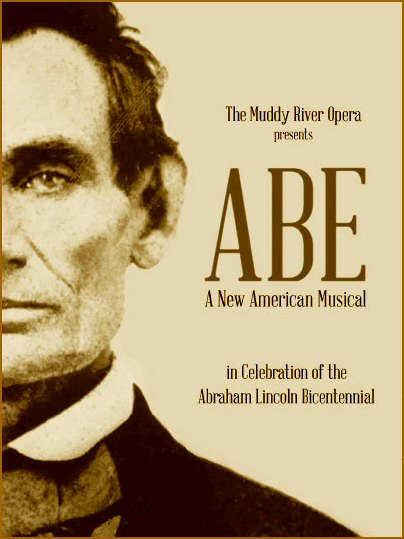 Though certainly not an opera, I immediately knew I could take advantage of the epic nature of the project to compose music that was often Americana and somewhat operatic. I also wanted to follow the influence of European classical music on music of the early 1800s in America. Hopefully, both elements are satisfying in the score, but all is served beautifully in Greg Anthony’s elegant orchestrations.
Though certainly not an opera, I immediately knew I could take advantage of the epic nature of the project to compose music that was often Americana and somewhat operatic. I also wanted to follow the influence of European classical music on music of the early 1800s in America. Hopefully, both elements are satisfying in the score, but all is served beautifully in Greg Anthony’s elegant orchestrations.
Lee’s script cleverly pairs with Abe Lincoln in Illinois, dramatizing successive scenes that do not occur in Sherwood’s play, but fill out the same timeline and story. Whether or not the audience is aware of the puzzle isn’t important, but it enriches the project once it’s known. Starting with that premise, the musical follows its own path, offering unique moments, including Lee’s unexpected reenactment of the New Orleans slave auction during the Ball at the end of Act One.
After the Muddy River Opera premiere, the musical was recommended by the Abraham Lincoln Bicentennial Commission and is now published by Samuel French.
By design, Abe is a large show, including an orchestration for more than 20 musicians. However, it can be equally effective in a concert presentation.
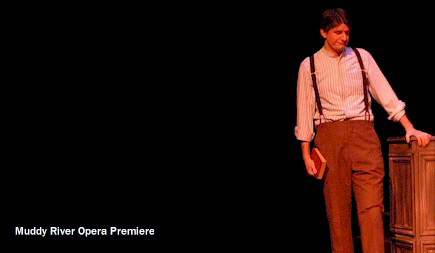 |
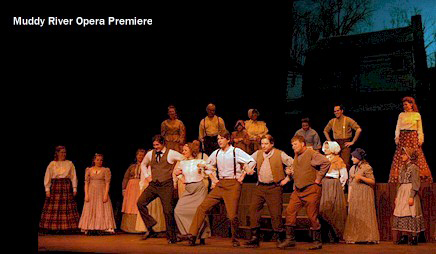 |
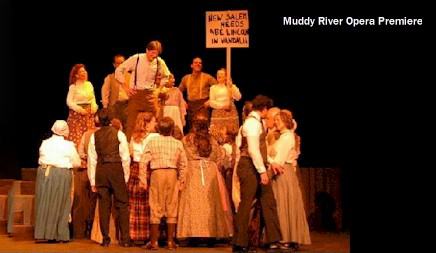 |
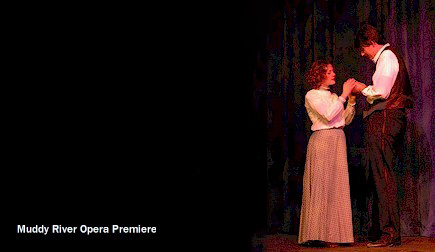 |
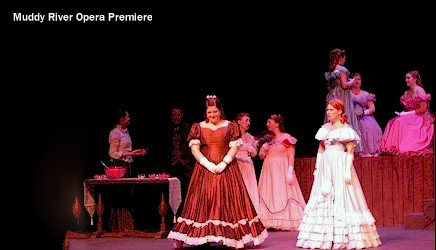 |
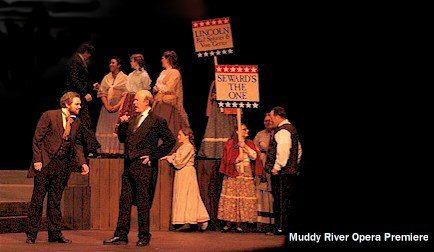 |
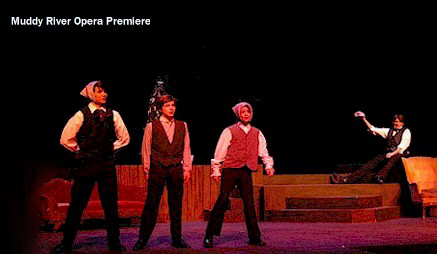 |
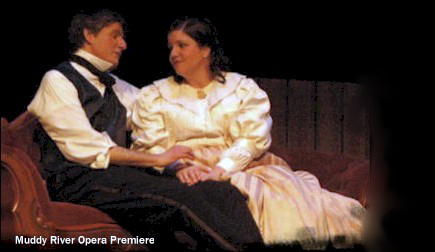 |
